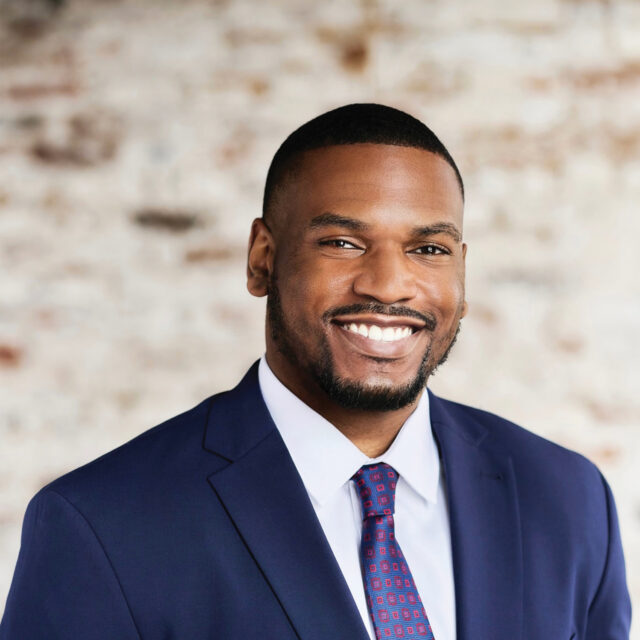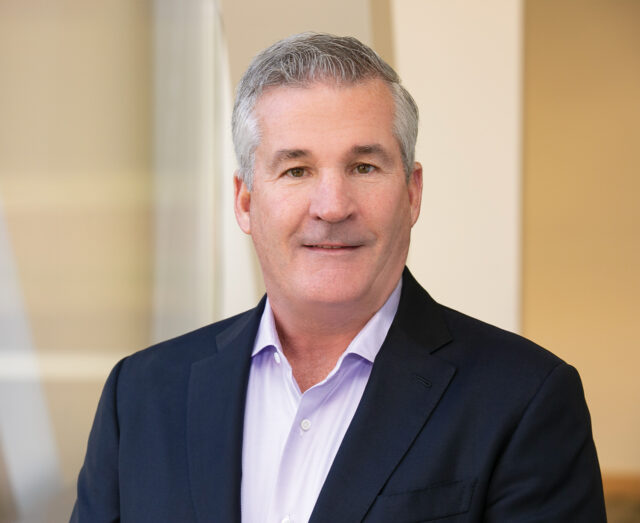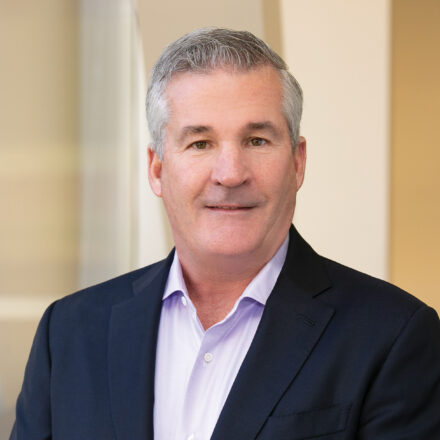In our “Ask me anything” series, Dell Technologies executives sit down with rising talent to answer questions about their career journeys, work-life balance and advice that’s guided them. Here, Bill Scannell, president of global sales and customer operations at Dell, chats with Donovan Louis, marketing analyst.

Could you share your most valued career principles? Perhaps the top three that influence your approach to leadership?
My most valued career principles are:
- Lead from the front. I won’t ask team members to do things I’m not willing and prepared to do myself.
- Hard work—outwork and outhustle everyone. Hard work is the great equalizer. You don’t have to be the smartest person in the room, but you can be the hardest working.
- Treat everyone with respect. Period. No exceptions.
Can you tell us about the biggest obstacle you faced in the early years of your sales career and what specific steps you took to overcome it?
The biggest obstacle when I started my sales career was understanding the technical aspects of the business. I learned early on that I would not be successful selling technology unless I understood how it worked, why we had a technically superior product, what problems it solved and how we deliver superior outcomes for our customers. I had to be a student of the industry. I needed to know my brief.
I just celebrated my 37th anniversary with the company. I’ve stayed this long because I’ve never woken up in the morning without loving my job.
—Bill Scannell, president of global sales and customer operations, Dell Technologies
Can you explain the factors that have motivated your loyalty to Dell throughout your career and the benefits you have received as a result?
I just celebrated my 37th anniversary with the company. The first 31 years were with EMC, and the last six years have been with Dell. I’ve stayed this long because I’ve never woken up in the morning without loving my job. I’ve held so many interesting positions, lived and traveled to so many great places and have worked with the best sales teams in the world. Why wouldn’t I be loyal to a company that provided these opportunities?
Can you describe your process for regularly evaluating your personal strengths and weaknesses and setting goals for growth?
I have a formal and informal process to evaluate my capabilities. The formal process is gathering anonymous feedback from my team members on a yearly basis. I encourage them to be honest, so I can continue to progress as a leader and get better. My informal process is to be approachable and encourage team members to let me know when I make mistakes. I’m human and will make mistakes. Problems arise when you aren’t consistently looking at how you made the mistake so that you can quickly course correct. You need to always be open-minded and approachable. I like the expression, “The mind is like a parachute—it only works when it is open.”
How do you plan to adapt your sales strategies to accommodate the growing trend of remote work, and what challenges do you foresee in this transition?
When COVID first hit us, we had no choice and had to quickly switch to 100% remote. This put some real stress on many, but we all adapted. Now, however, I think we need the pendulum to swing back to a more hybrid model. In sales, it’s incredibly important for more face-to-face collaboration with team members, customers and partners. So, I encourage team members to show up in the office, show up at our customer locations and show up at our partner locations a few days a week. I’m also a big fan of management by walking around and informally checking in on the organization.
I’m a big fan of having balance in life, specifically balance between work and family. I take time to exercise, whether it’s walking, using the elliptical or playing a little pickleball with family and friends. I try not to stress the little things in life. – Bill Scannell, president of global sales and customer operations, Dell Technologies
Can you share some of your strategies for balancing your mental health while taking on your professional responsibilities?
I’m a big fan of having balance in life, specifically balance between work and family. I take time to exercise, whether it’s walking, using the elliptical or playing a little pickleball with family and friends. I try not to stress the little things in life. And I love to laugh and make others laugh. But mental health is a serious issue, and that’s why it’s important to check in on family, friends and team members on a regular basis.
Can you tell us about one of your favorite hobbies or interests outside of work and how it contributes to your work-life balance and personal well-being?
My favorite hobby is golf. I love to compete. I love the friendly bets, and I love to win. I’ve been fortunate to play some of the best courses in the world. My main interest outside of work is family. I’m blessed to have incredible relationships with my wife, children and their spouses. I have two wonderful grandchildren, and I’m close with my siblings and all my nieces and nephews and their growing families.
I will be in your role one day. Can you provide specific examples of how you developed the top three skills you believe are necessary for success?
I learned the importance of hard work from my parents (and how to have fun). I firmly believe that working hard is the great equalizer—show up and know your brief, as I shared earlier. Working hard is my number one skill for success. Next, I came across an old proverb many years ago that translates to, “Do right and fear no man.” I prefer to say, “Do right and fear no one.” That proverb resonated with me, and I decided that was how I wanted to live my life. Let people know your values and what you stand for. Help those who might be struggling. Look out for each other. And the last skill I believe is necessary for success is this: action. Actions speak louder than words. Be bold. Be the first one to act. Be a leader.
Read more “Ask me anything” interviews.

